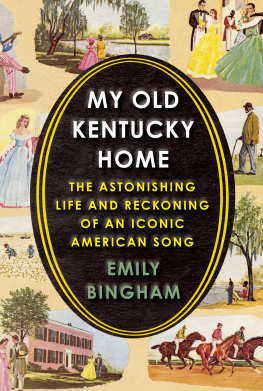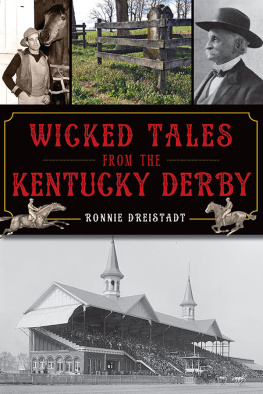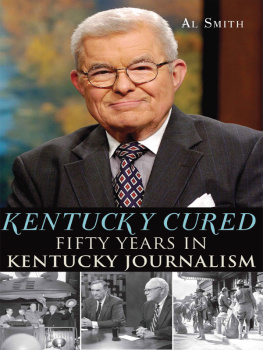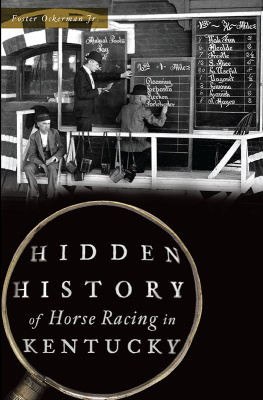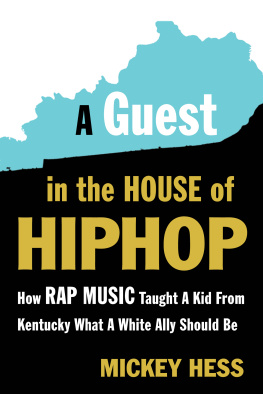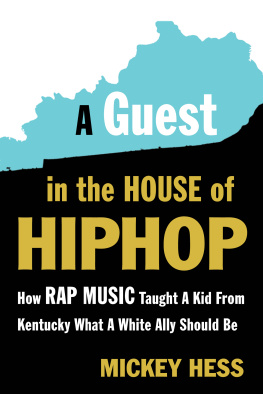Emily Bingham - My Old Kentucky Home: The Astonishing Life and Reckoning of an Iconic American Song
Here you can read online Emily Bingham - My Old Kentucky Home: The Astonishing Life and Reckoning of an Iconic American Song full text of the book (entire story) in english for free. Download pdf and epub, get meaning, cover and reviews about this ebook. City: New York, year: 2022, publisher: Knopf, genre: Art. Description of the work, (preface) as well as reviews are available. Best literature library LitArk.com created for fans of good reading and offers a wide selection of genres:
Romance novel
Science fiction
Adventure
Detective
Science
History
Home and family
Prose
Art
Politics
Computer
Non-fiction
Religion
Business
Children
Humor
Choose a favorite category and find really read worthwhile books. Enjoy immersion in the world of imagination, feel the emotions of the characters or learn something new for yourself, make an fascinating discovery.
- Book:My Old Kentucky Home: The Astonishing Life and Reckoning of an Iconic American Song
- Author:
- Publisher:Knopf
- Genre:
- Year:2022
- City:New York
- Rating:4 / 5
- Favourites:Add to favourites
- Your mark:
My Old Kentucky Home: The Astonishing Life and Reckoning of an Iconic American Song: summary, description and annotation
We offer to read an annotation, description, summary or preface (depends on what the author of the book "My Old Kentucky Home: The Astonishing Life and Reckoning of an Iconic American Song" wrote himself). If you haven't found the necessary information about the book — write in the comments, we will try to find it.
MY OLD KENTUCKY HOME, from its enormous success in the early 1850s, written by a white man, considered the father of American music, about a Black man being sold downriver, performed for decades by white men in blackface, and the song, an anthem of longing and pain, turned upside down and, over time, becoming a celebration of happy plantation life.
It is the state song of Kentucky, a song that has inhabited hearts and memories, and in perpetual reprise, stands outside time; sung each May, before every Kentucky Derby, since 1930.
Written by Stephen Foster nine years before the Civil War, My Old Kentucky Home made its way through the wartime years to its decades-long run as a national minstrel sensation for which it was written; from its reference in the pages of Margaret Mitchells Gone with the Wind to being sung on The Simpsons and Mad Men.
Originally called Poor Uncle Tom, Good-Night! and inspired by Americas most famous abolitionist novel, it was a lament by an enslaved man, sold by his master, who must say goodbye to his beloved family and birthplace, with hints of the brutality to come: The head must bow and the back will have to bend / Wherever the darky may go / A few more days, and the trouble all will end / In the field where the sugar-canes grow . . .
In My Old Kentucky Home, Emily Bingham explores the long, strange journey of what has come to be seen by some as an American anthem, an integral part of our folklore, culture, customs, foundation, a living symbol of a happy past. But My Old Kentucky Home was never just a song. It was always a song about slavery with the real Kentucky home inhabited by the enslaved and shot through with violence, despair, and degradation.
Bingham explores the songs history and permutations from its decades of performances across the continent, entering into the bloodstream of American life, through its twenty-first-century reassessment. It is a song that has been repeated and taught for almost two hundred years, a resonant changing emblem of Americas original sin whose blood-drenched shadow hovers and haunts us still.
Emily Bingham: author's other books
Who wrote My Old Kentucky Home: The Astonishing Life and Reckoning of an Iconic American Song? Find out the surname, the name of the author of the book and a list of all author's works by series.

